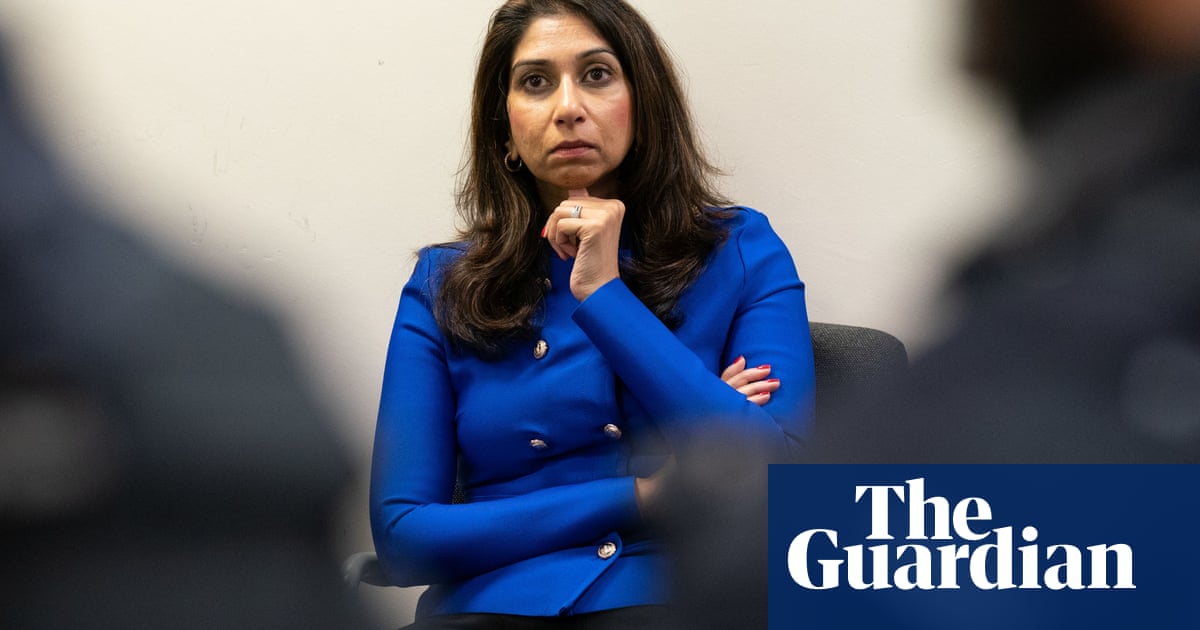
Boris Johnson has been left desperately trying to shore up his premiership after the Sue Gray report as detectives were revealed to be investigating 300 photos and 12 events in Downing Street, including a party in the prime minister’s private flat.
Johnson faced a wall of anger from Conservative MPs in the House of Commons after Gray’s investigation concluded that many of the 16 parties were “difficult to justify” and condemned “failures of leadership and judgment” in No 10 and the Cabinet Office.
Scotland Yard officers have obtained more than 300 photographs and 500 pages of documents. The images include pictures taken at alleged parties and from security-system cameras showing people entering and exiting buildings, the Guardian understands.
Tory grandees were among those who made stinging interventions criticising Johnson’s conduct, with his predecessor, Theresa May, questioning his comprehension of the rules and the former chief whip Andrew Mitchell saying the prime minister no longer had his support.
Angela Richardson, a Tory aide, said she had resigned her government job last week citing “disappointment” with the prime minister, while Aaron Bell, an MP from the 2019 intake, gave an emotionally charged speech accusing Johnson of making him look like a fool after he stuck to the rules during his grandmother’s funeral.
However, Johnson appeared to have staved off an immediate challenge by pledging a shakeup of his Downing Street operation and belatedly promising to publish Gray’s full blow-by-blow account of the parties once the police have finished investigating.
He later made a rare address to all his MPs, announcing changes to his No 10 staff in the coming days. He suggested that his former election guru, Sir Lynton Crosby, would be returning to help in an unofficial role.
Conservatives were initially dismayed by Johnson’s defiant Commons performance in which he refused to commit to publishing Gray’s full report, which was redacted following the announcement of a Metropolitan police inquiry.
But after former ministers including Mark Harper and Tobias Ellwood pressed him for a full and unredacted publication, he was forced into a U-turn.
Several Tory MPs opposed to the prime minister’s continued leadership said they were witnessing “death by 1,000 cuts” and questioned why more of their colleagues were not submitting letters of no confidence. At least 54 are needed for a ballot on Johnson’s leadership, but even sharp critics like Mitchell are not believed to have handed in letters.
One MP said Johnson’s determination to keep fighting meant removing him would be “extremely painful” and cause huge damage to the party, while another said it was clear Tory MPs would at some point need to “get the screwdrivers out to prise his hands off the doors of Downing Street”.
The 12-page Gray report identified “failures of leadership and judgment” but left many questions unanswered, including whether Johnson had misled the Commons by denying parties took place and saying all Covid rules were followed.
Ian Blackford, the SNP Westminster leader, was thrown out of the Commons for breaching protocol by repeatedly accusing the prime minister of having “lied and misled” parliament.
MPs said the most damaging allegation was of a party on 13 November 2020, the evening that former aide Dominic Cummings quit, in Boris and Carrie Johnson’s flat. There had been reports of loud music and partying heard in the press office below and the alleged gathering is now under police investigation.
The prime minister refused to tell parliament whether he was present in the flat that evening. He had previously denied in the Commons that any party took place on that date. Johnson was also present for at least one other of the parties under investigation by police – the “bring your own booze” affair in the Downing Street garden on 20 May 2020.
Keir Starmer, the Labour leader, said: “There can be no doubt that the prime minister himself is now subject to criminal investigation.”
Johnson rebuffed questions about his own conduct, but promised to overhaul the structure of No 10 to address some of Gray’s criticisms. “I get it and I will fix it,” he told MPs. He also sought to turn his fire on the opposition by making discredited claims about Starmer having failed to prosecute paedophile Jimmy Savile when he was director of public prosecutions.
One cabinet minister said there was significant concern about the continued centralisation of No 10, however: “One of the reasons this situation has evolved has been a reluctance from some people around the PM to take outside advice.” Another senior minister said: “Departments are constantly frustrated by nameless people in No 10 – is this the moment to add another layer of them.”
Tory MPs initially said they were unimpressed by Johnson’s Commons performance and accused him of misjudging the mood – but many are continuing to withhold judgement until the Met investigation is complete, a new test of whether Johnson will personally get a sanction for breaching Covid rules.
In her report, Gray did not criticise the prime minister personally or pass judgment on his past statements, but she highlighted failures at the heart of government.
Gray listed 16 gatherings on 12 dates across 20 months in 2020-21 that she had examined for evidence of rule-breaking, of which 12 are being investigated by police.
Gray said her report was limited by the Met’s request for her to make only minimal reference to gatherings that they were investigating. She said she had decided not to publish factual accounts of the other four dates as she did not feel able to do so without detriment to the overall balance of findings.
It is understood that a more detailed full report currently exists and that Gray is keen to see that put into the public domain.
Mark Harper, the former chief whip, said he was still uneasy about the prime minister’s commitment to publishing the full document, saying that Johnson had to commit “at the despatch box”.












